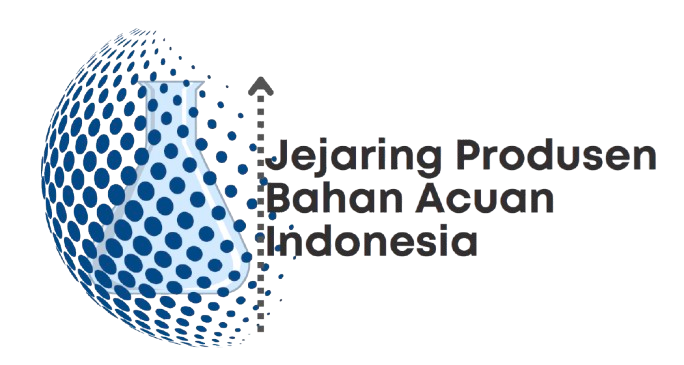If you’ve been online recently—scrolling through social media or ordering groceries from your phone—you’ve already felt the effects of something much bigger: the ecommerce wave. In Pakistan, this wave has turned into a full-blown surge. Ecommerce website development in Pakistan is not just growing—it’s booming in 2025. But what’s driving this growth? Why is now the golden time for businesses, big or small, to invest in an ecommerce presence?
Let’s break it down in a way that’s easy to follow, especially if you’re a homeowner, a small business owner, or just someone curious about where the digital economy is headed.
1. The Digital Shift: Everyone’s Online
In the last few years, Pakistan has seen a dramatic increase in internet and smartphone usage. As of 2025, over 70% of the population has access to mobile internet. That means more people are shopping, browsing, and researching products from the comfort of their homes.
This digital lifestyle has made ecommerce websites essential—not just for big brands but for local stores, service providers, and even home-based businesses. If you’re not online, you’re invisible. That’s why ecommerce website development in Pakistan is in high demand—businesses want to be found.
2. Rise of the Home-Based Entrepreneur
A surprising driver behind the ecommerce boom? Homeowners and everyday people launching side businesses online.
From handmade crafts to imported kitchen gadgets, Pakistani entrepreneurs are creating online stores from their living rooms. Platforms like Shopify, WooCommerce, and locally built solutions are empowering non-techies to open virtual shops with professional designs and secure payment options.
This shift has also created a ripple effect: the need for skilled developers, designers, and ecommerce consultants has skyrocketed. And in response, ecommerce website development in Pakistan has become a thriving industry supporting this new wave of digital entrepreneurship.
3. Government Support & Fintech Growth
The Pakistani government has also stepped up in recent years. Digital Pakistan initiatives, tax incentives for IT exports, and new freelance-friendly policies have created a supportive environment for digital growth.
Moreover, fintech startups and payment gateway providers (like Easypaisa, JazzCash, and others) have made it easier to accept online payments securely. No more cash-only operations—businesses can now collect payments from customers across the country without any fuss.
For homeowners who may once have hesitated to trust online transactions, the improved infrastructure has built confidence—and encouraged more online buying and selling.
4. Youth-Driven Innovation
Pakistan has one of the youngest populations in the world, with a median age under 24. This youthful demographic is tech-savvy, ambitious, and eager to start something of their own.
Many young people are skipping traditional 9-to-5 jobs and choosing freelancing or launching their own ecommerce stores. As a result, there’s a growing demand for tailored ecommerce websites—something you can’t get from generic templates alone. Developers are now building customized, mobile-first, SEO-optimized ecommerce platforms to meet these needs.
This demand has created jobs, fueled training programs, and turned ecommerce website development in Pakistan into a booming career path.
5. Affordable Development Costs
Compared to North America or Europe, developing a professional ecommerce website in Pakistan is significantly more affordable—without compromising on quality.
Skilled developers, designers, and content creators are offering top-tier services at rates that are friendly for local startups. Even international clients are outsourcing ecommerce development to Pakistani professionals, bringing in foreign revenue and creating more opportunities at home.
For a homeowner looking to sell home décor items, organic products, or even property services, it’s never been easier or cheaper to build an online storefront that looks professional and works seamlessly.
6. Social Media Meets Ecommerce
Another big reason for the surge? The tight integration between social media and ecommerce. Platforms like Instagram, Facebook, and TikTok are not just for fun anymore—they’re powerful sales tools.
Local businesses are combining social media presence with full-fledged ecommerce websites to create an end-to-end shopping experience. A user sees a product on Instagram, taps a link, and lands on a sleek, fast-loading ecommerce site—built right here in Pakistan.
That seamless experience is driving higher sales, more customer trust, and repeat business—further fueling ecommerce website development in Pakistan.
7. Logistics and Delivery Improvements
One of the old pain points in online shopping was delivery. But in 2025, logistics has taken a huge leap. Local courier companies like TCS, Leopards, and M&P, as well as newer logistics startups, have streamlined delivery systems and cash-on-delivery options.
This efficiency has removed one of the last hurdles for ecommerce: customers now expect fast, trackable deliveries, and businesses can promise that—thanks to robust backend systems integrated with ecommerce platforms.
For homeowners running businesses from their kitchen or garage, that’s a game-changer. You can now reach customers nationwide without needing a physical storefront.
8. The Freelance and Export Opportunity
Freelancers and agencies in Pakistan aren’t just building ecommerce sites for local clients—they’re exporting services globally. From the U.S. to the Middle East, clients are tapping into Pakistan’s talent pool for affordable, high-quality ecommerce development.
That’s created a feedback loop: more success stories, more demand, more skilled professionals, and more recognition of ecommerce website development in Pakistan as a global force.
Final Thoughts: The Best Time to Get Online
If you’re a homeowner with a small business idea, a service provider, or someone just curious about the online market—you don’t need to wait. The tools, support, and expertise are all here, and the cost of entry has never been lower.
Ecommerce website development in Pakistan is more than a tech trend. It’s a reflection of how everyday people are using digital tools to create income, build brands, and serve communities. Whether you want to sell handmade furniture, organic spices, or offer virtual design consultations, there’s a place for you in Pakistan’s booming ecommerce ecosystem.
And the best part? You can start from home.

